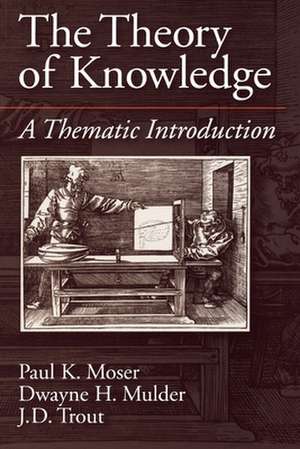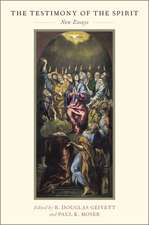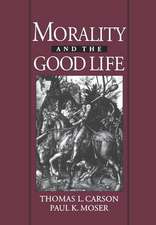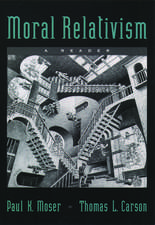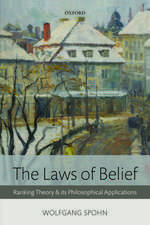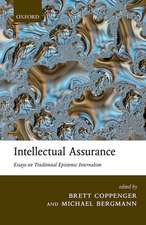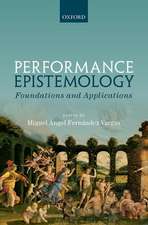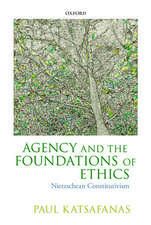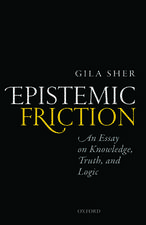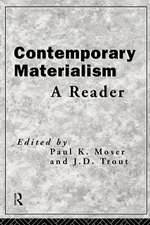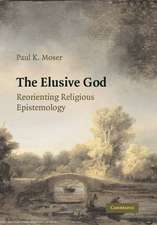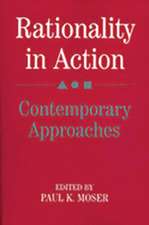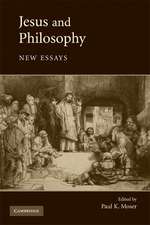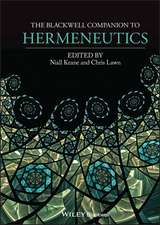The Theory of Knowledge: A Thematic Introduction
Editat de Paul K. Moseren Limba Engleză Paperback – 3 dec 1997
The book culminates with a focus on questions regarding epistemological method and an examination of the roots of contemporary analytic approaches to epistemology. The authors defend a distinctive position regarding epistemological method, called broad explanationism, that incorporates some insights from naturalism in epistemology. The volume is enhanced by a glossary of important epistemological terms and suggestions for further reading. Easily accessible to beginning students in philosophy, The Theory of Knowledge serves as an ideal text for courses in the theory of knowledge and will also appeal to general readers interested in philosophy.
Preț: 504.48 lei
Preț vechi: 655.17 lei
-23% Nou
Puncte Express: 757
Preț estimativ în valută:
96.53€ • 101.06$ • 79.87£
96.53€ • 101.06$ • 79.87£
Carte tipărită la comandă
Livrare economică 05-19 aprilie
Preluare comenzi: 021 569.72.76
Specificații
ISBN-13: 9780195094664
ISBN-10: 0195094662
Pagini: 224
Ilustrații: line illustrations
Dimensiuni: 156 x 234 x 11 mm
Greutate: 0.36 kg
Editura: Oxford University Press
Colecția OUP USA
Locul publicării:New York, United States
ISBN-10: 0195094662
Pagini: 224
Ilustrații: line illustrations
Dimensiuni: 156 x 234 x 11 mm
Greutate: 0.36 kg
Editura: Oxford University Press
Colecția OUP USA
Locul publicării:New York, United States
Descriere
This book is an accessible introduction to contemporary epistemology, the theory of knowledge. It introduces traditional topics in epistemology within the context of contemporary debates about the definition, sources, and limits of human knowledge. Rich in examples and written in an engaging style, it explains the field while avoiding technical detail. It relates epistemology to work in cognitive science and defends a plausible version of explanationism regardingepistemological method.
